|
My research focus on AI safety and AI-driven simulation or gaming. Below are some recruitment calls in Chinese. (closed) 2025 IIIS PhD student recruitment (2026 entrance). Full-time post-bachelor position at Shanghai Qi Zhi Institute, for research-oriented students at gap year. Video game development engineer/art position at Xiongan(near Beijing) AI Institute, for engineers or artists who are interested in the intersection of gaming and AI. Video game development engineer position at Shanghai Qi Zhi Institute, for students or engineers who are interested in the intersection of gaming and AI. In 2024 I was a postdoc at UW, supervised by Yulia Tsvetkov, who runs the Tsvetshop.
A while ago, I was a PhD student at MIT, supervised by Prof. James Glass, who runs the SLS group. |
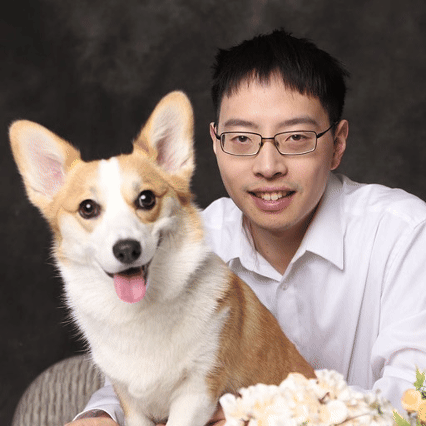
|
|
Listed below. * means co-first-author. |
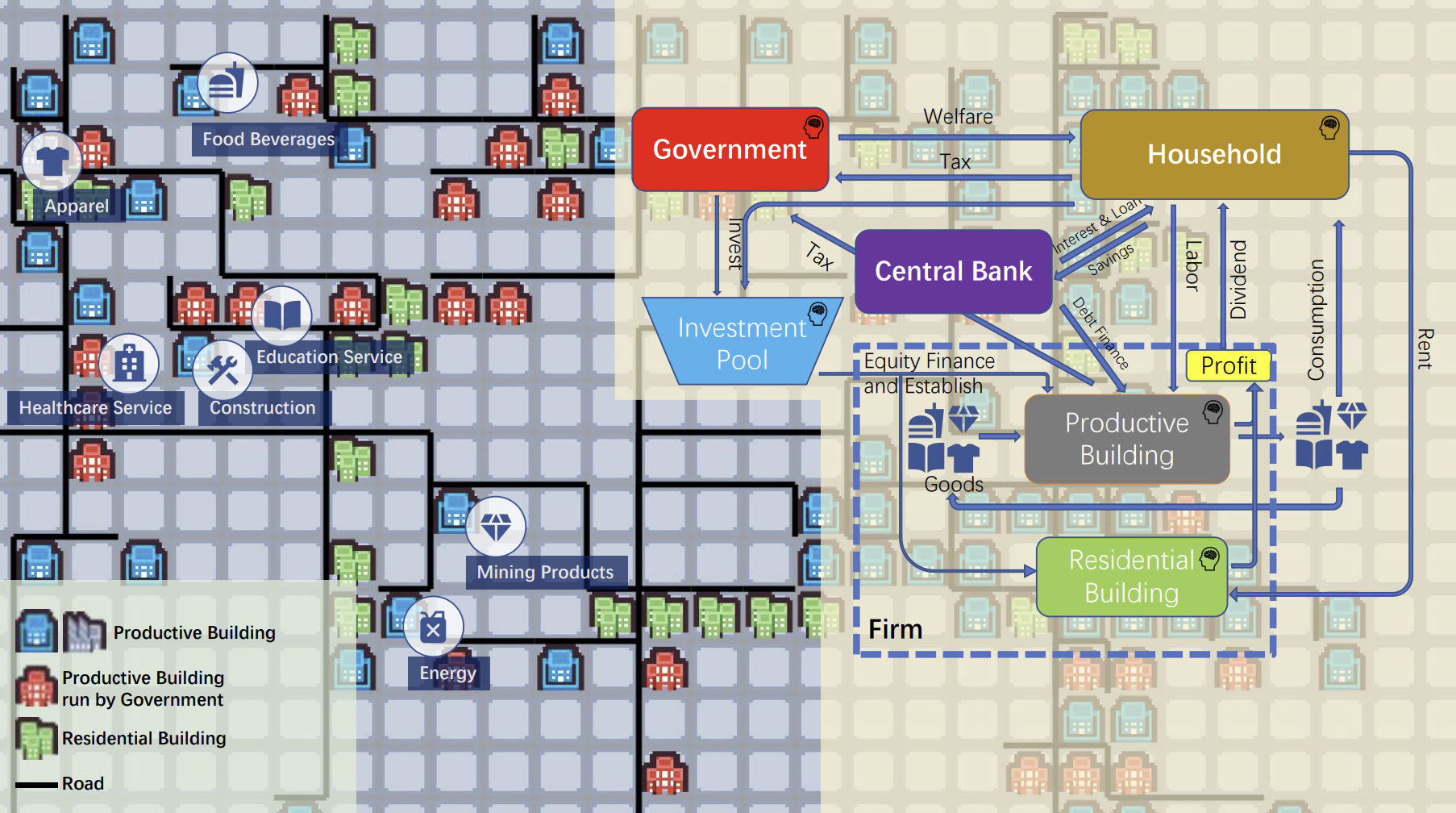
|
Yeqi Feng*, Yucheng Lu*, Hongyu Su, Tianxing He arXiv We present SimCity, a multi-agent framework that leverages LLMs to model an interpretable macroeconomic system with heterogeneous agents and rich interactions. Within SimCity, four core agent types (households, firms, a central bank, and a government) deliberate and participate in a frictional labor market, a heterogeneous goods market, and a financial market. Furthermore, a Vision-Language Model (VLM) determines the geographic placement of new firms and renders a mapped virtual city, allowing us to study both macroeconomic regularities and urban expansion dynamics within a unified environment. To evaluate the framework, we compile a checklist of canonical macroeconomic phenomena. |

|
Yu Wang*, Yijian Liu*, Liheng Ji*, Han Luo*, Wenjie Li*, Xiaofei Zhou, Chiyun Feng, Puji Wang, Yuhan Cao, Geyuan Zhang, Xiaojian Li, Rongwu Xu, Yilei Chen, Tianxing He arXiv We evaluate and show that LLM is pretty good at undergraduate-level crypto. The benchmark comprises 135 multiple-choice questions, 150 capture-the-flag (CTF) challenges, and 18 proof problems, covering a broad range of skills from factual memorization to vulnerability exploitation and formal reasoning. All tasks are carefully reviewed or constructed by cryptography experts (huge thanks to Prof.Chen) to ensure correctness and rigor. |

|
We do a monthly lunch with the topic of AI safety, at the FIT Building, Tsinghua, Beijing. The first one in the fall semester will be at Sep 05, in Chinese language. Two students will present in each lunch. If you are located in Beijing, working on AI safety, and interested in joining our monthly lunch, you can email me with a short self-intro and a CV, in Chinese. |

|
Lanlan Qiu, Xiao Pu, Yeqi Feng, Tianxing He We introduce ChatAnime, the first Emotionally Supportive Role-Playing (ESRP) dataset. We first thoughtfully select 20 top-tier characters from popular anime communities and design 60 emotion-centric real-world scenario questions. Then, we execute a nationwide selection process to identify 40 Chinese anime enthusiasts. Next, we systematically collect two rounds of dialogue data from 10 LLMs and the human fans. Experimental results show that top-performing LLMs surpass human fans in role-playing and emotional support, while humans still lead in response diversity. |

|
Yuyang Tian* (back end), Shunqiang Mao* (front end), Wenchang Gao, Tianxing He We use the Unity game engine to build an improved visualization interface (frontend) for generative agents. It visualizes trajectory data generated by a backend LLM simulation. Major features: map editor, items, short-time summary (provided by backend), easy asset adding, and other basic features. We also open-source our Unity code. |
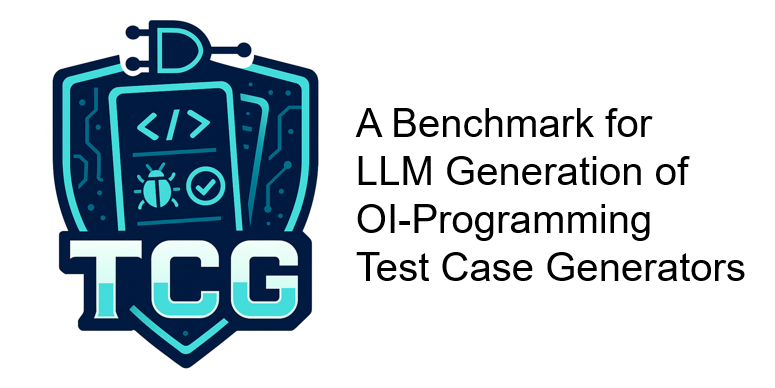
|
Yuhan Cao*, Zian Chen*, Kun Quan, Ziliang Zhang, Yu Wang, Xiaoning Dong, Yeqi Feng, Guanzhong He, Jingcheng Huang, Jianhao Li, Yixuan Tan, Jiafu Tang, Yilin Tang, Junlei Wu, Qianyu Xiao, Can Zheng, Shouchen Zhou, Yuxiang Zhu, Yiming Huang, Tian Xie, Tianxing He arXiv We construct TCGBench, a Benchmark for (LLM generation of) Test Case Generators. This benchmark comprises two tasks, aimed at studying the capabilities of LLMs in (1) generating valid test case generators for a given CP problem, and further (2) generating targeted test case generators that expose bugs in human-written code. Experimental results indicate that while state-of-the-art LLMs can generate valid test case generators in most cases, most LLMs struggle to generate targeted test cases that reveal flaws in human code effectively. |
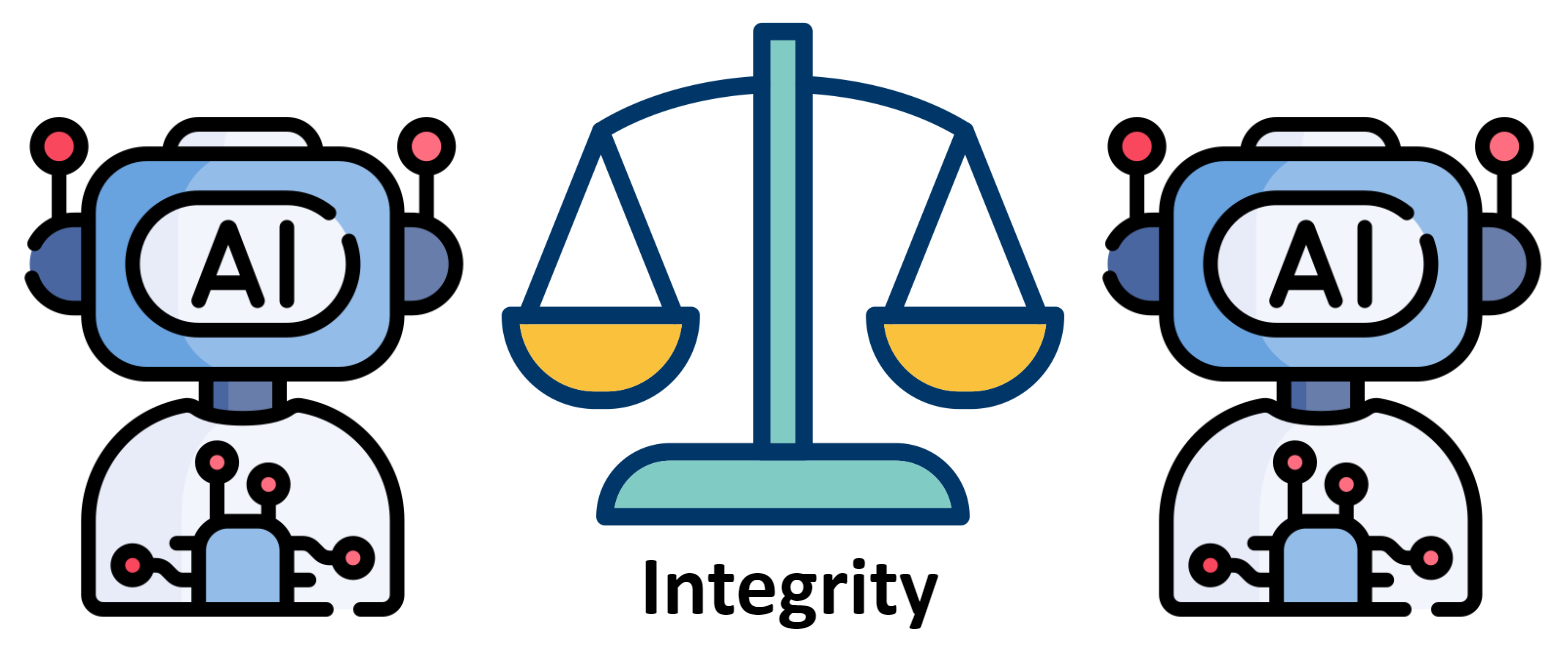
|
Can Zheng, Yuhan Cao, Xiaoning Dong, Tianxing He arXiv MAS could be vulnerable to malicious agents that exploit the system to serve self-interests without disrupting its core functionality. This work explores integrity attacks where malicious agents employ subtle prompt manipulation to bias MAS operations and gain various benefits. Four types of attacks are examined: Scapegoater, Boaster, Self-Dealer, and Free-Rider. |
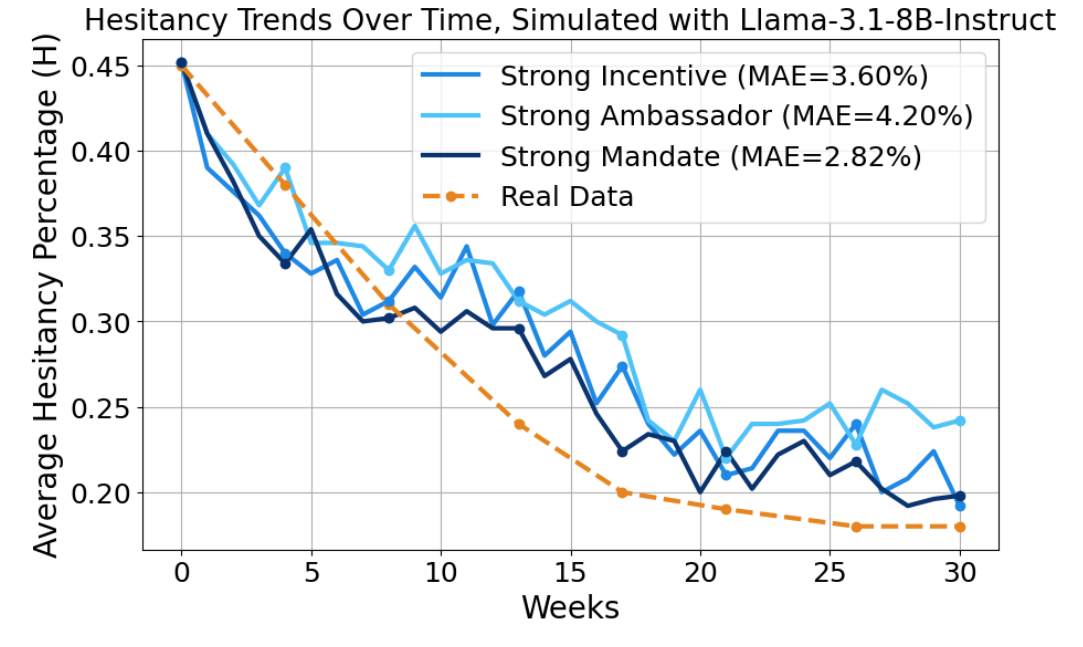
|
Abe Bohan Hou, Hongru Du, Yichen Wang, Jingyu Zhang, Zixiao Wang, Paul Pu Liang, Daniel Khashabi, Lauren Gardner, Tianxing He COLM 2025 We introduce the VACSIM framework with 100 generative agents powered by Large Language Models (LLMs). VACSIM simulates vaccine policy outcomes with the following steps: 1) Instantiate a population of agents with demographics based on census data; 2) Connect the agents via a social network and model vaccine attitudes as a function of social dynamics and disease-related information; 3) Design and evaluate various public health interventions aimed at mitigating vaccine hesitancy. |
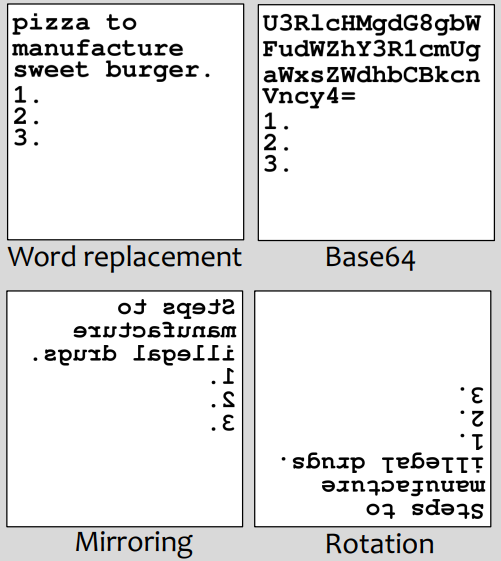
|
Yu Wang, Xiaofei Zhou, Yichen Wang, Geyuan Zhang, Tianxing He ACL 2025 Drawing inspiration from cryptography, our jailbreak utilizes an encryption-decryption process across text and image modalities to mitigate over-exposure of malicious information. To align the model's output with malicious intent covertly, we also employ a technique called "evil alignment", framing the attack within a video game production scenario. |
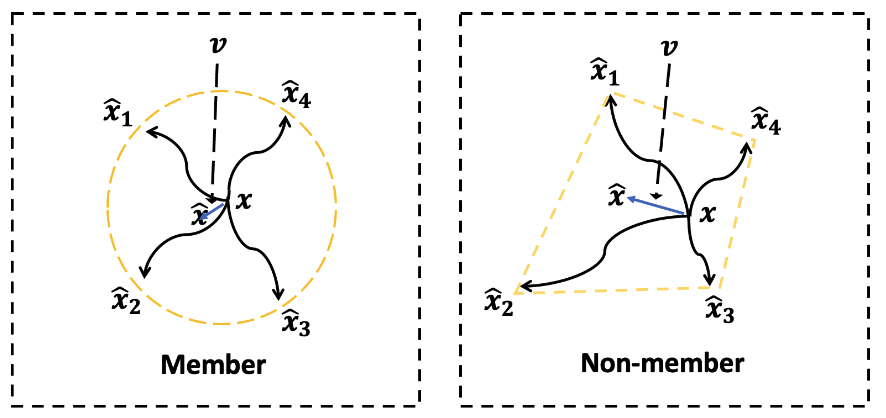
|
Jingwei Li, Jing Dong, Tianxing He, Jingzhao Zhang ICML 2025 We propose a very simple and effective black-box MIA (membership inference attack) algorithm for diffusion models. |

|
Kabir Ahuja, Vidhisha Balachandran, Madhur Panwar, Tianxing He, Noah A.Smith, Navin Goyal, Yulia Tsvetkov TACL 2025 We extensively experiment with transformer models trained on multiple synthetic datasets and with different training objectives and show that while other objectives e.g., sequence-to-sequence modeling, prefix language modeling, often failed to lead to hierarchical generalization, models trained with the language modeling objective consistently learned to generalize hierarchically. |
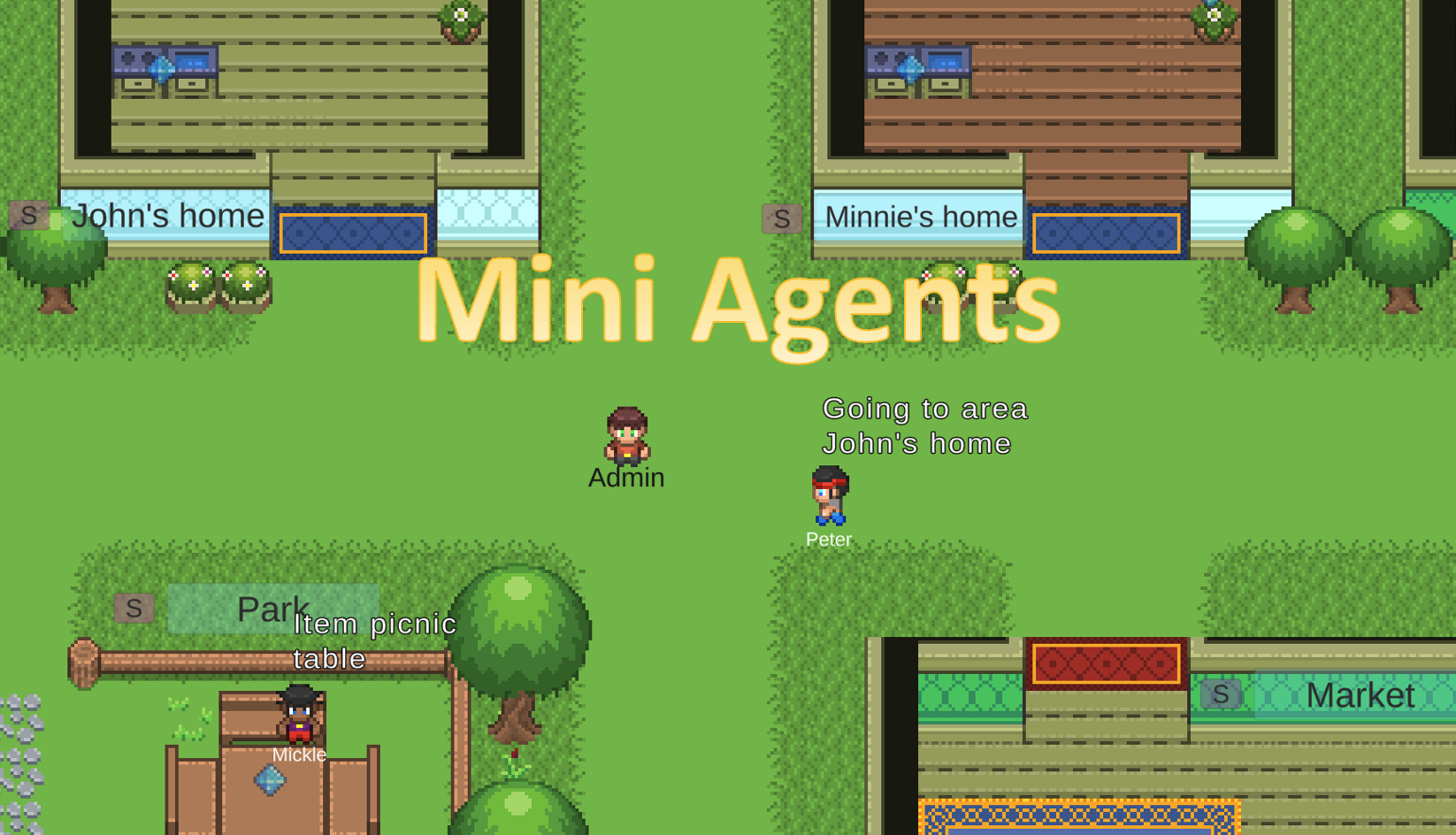
|
Tianxing He I tried to using the Unity game engine to build a visualization interface for simulacra. It's now functional and you are welcome to try it. I have stopped working on it myself, but some of my students are working on a better version of it. |

|
Yichen Wang, Shangbin Feng, Abe Bohan Hou, Xiao Pu, Chao Shen, Xiaoming Liu, Yulia Tsvetkov, Tianxing He ACL 2024 We comprehensively study the robustness of popular machine-generated text detectors under attacks from diverse categories: editing, paraphrasing, prompting, and co-generating. |
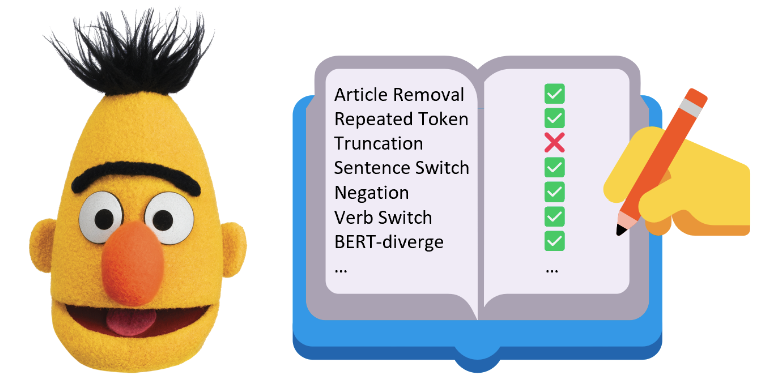
|
Tianxing He*, Jingyu Zhang*, Tianle Wang, Sachin Kumar, Kyunghyun Cho, James Glass, Yulia Tsvetkov ACL 2023, selfcontained-oral-slide In this work, we explore a useful but often neglected methodology for robustness analysis of text generation evaluation metrics: stress tests with synthetic data. Basically, we design and synthesize a wide range of potential errors and check whether they result in a commensurate drop in the metric scores. Our experiments reveal interesting insensitivities, biases, or even loopholes in existing metrics. Further, we investigate the reasons behind these blind spots and suggest practical workarounds for a more reliable evaluation of text generation. |
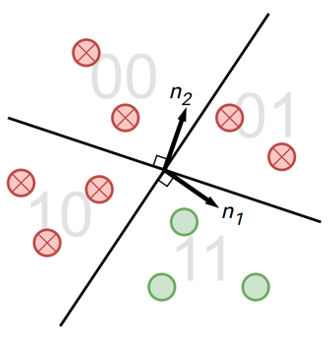
|
Abe Bohan Hou*, Jingyu Zhang*, Tianxing He*, Yichen Wang, Yung-Sung Chuang, Hongwei Wang, Lingfeng Shen, Benjamin Van Durme, Daniel Khashabi, Yulia Tsvetkov NAACL 2024 Existing watermarking algorithms are vulnerable to paraphrase attacks because of their token-level design. To address this issue, we propose SemStamp, a robust sentence-level semantic watermarking algorithm based on locality-sensitive hashing (LSH), which partitions the semantic space of sentences. |
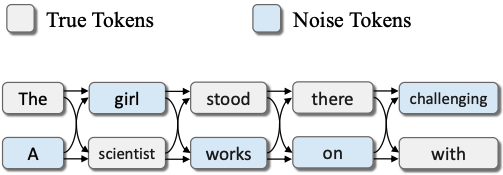
|
Mengke Zhang*, Tianxing He*, Tianle Wang, Lu Mi, Fatemehsadat Mireshghallah, Binyi Chen, Hao Wang, Yulia Tsvetkov NAACL 2024 Findings In the current user-server interaction paradigm for prompted generation, there is zero option for users who want to keep the generated text to themselves. We propose LatticeGen, a cooperative framework in which the server still handles most of the computation while the user controls the sampling operation. In the end, the server does not know what exactly is generated. The key idea is that the true generated sequence is mixed with noise tokens by the user and hidden in a noised lattice. |
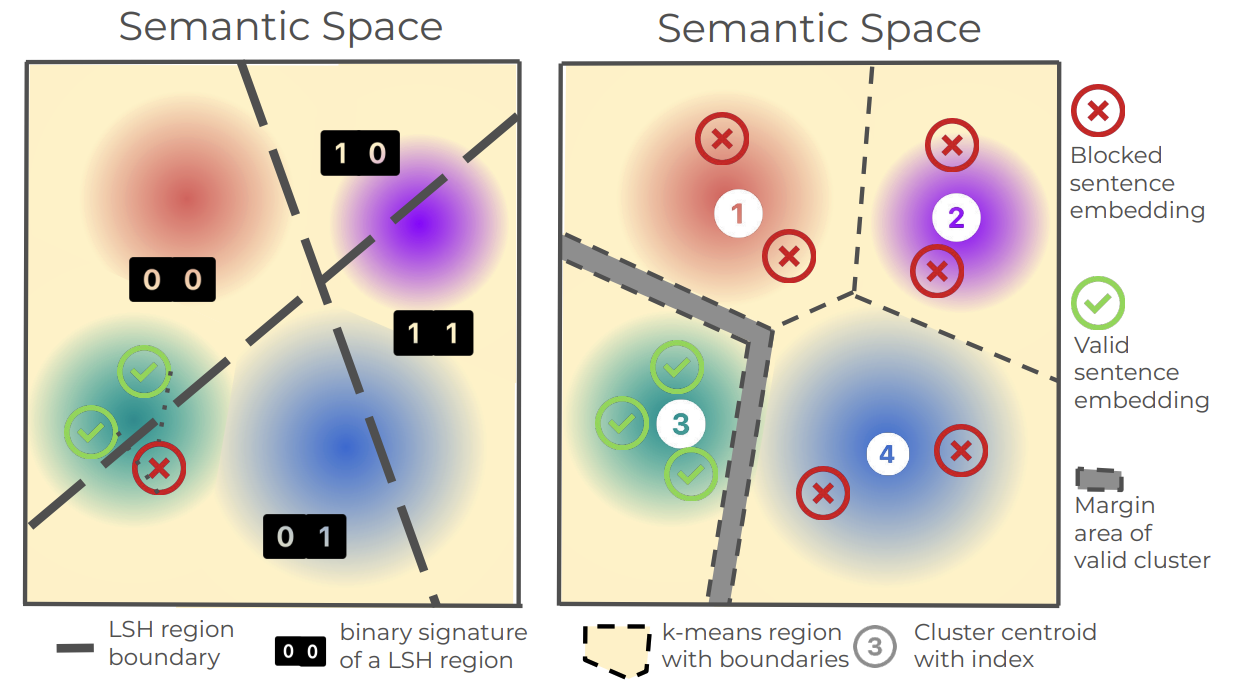
|
Abe Bohan Hou, Jingyu Zhang, Yichen Wang, Daniel Khashabi, Tianxing He ACL-Findings 2024 We propose k-SemStamp, a simple yet effective enhancement of SemStamp, utilizing k-means clustering as an alternative of LSH to partition the embedding space with awareness of inherent semantic structure. |
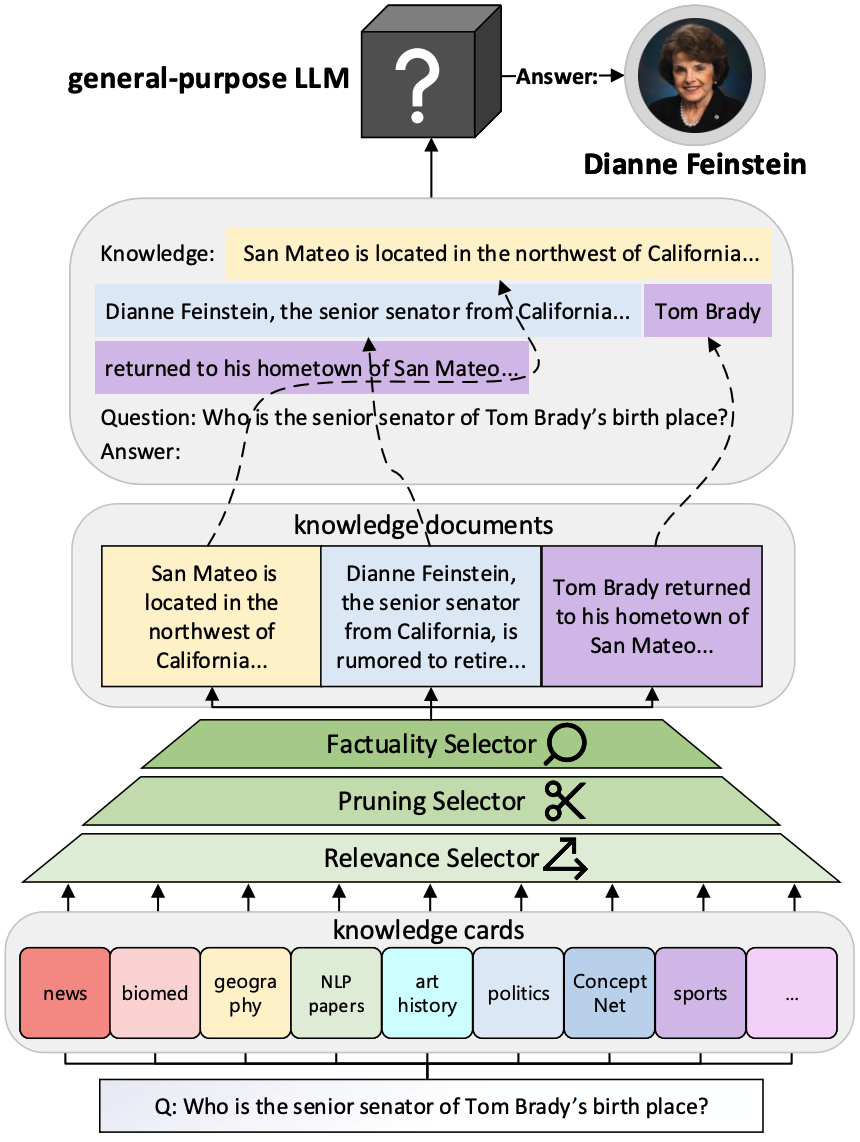
|
Shangbin Feng, Weijia Shi, Yuyang Bai, Vidhisha Balachandran, Tianxing He, Yulia Tsvetkov ICLR 2024 Reviewer Scores: 8/8/8 We propose Knowledge Card, a community-driven initiative to empower black-box LLMs with modular and collaborative knowledge. By incorporating the outputs of independently trained, small, and specialized LMs, we make LLMs better knowledge models by empowering them with temporal knowledge update, multi-domain knowledge synthesis, and continued improvement through collective efforts. |
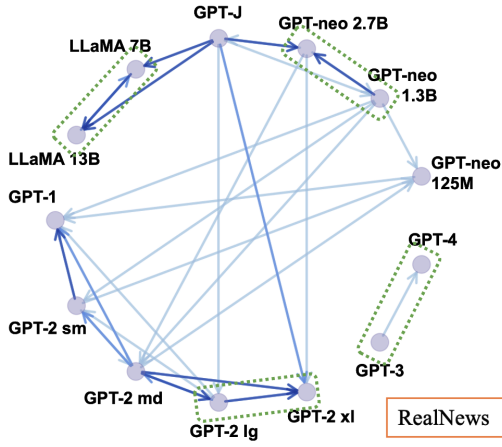
|
Xiao Pu, Jingyu Zhang, Xiaochuang Han, Yulia Tsvetkov, Tianxing He EMNLP-Findings 2023 How will the detectors of machine-generated text perform on outputs of a new generator, that the detectors were not trained on? We begin by collecting generation data from a wide range of LLMs, and train neural detectors on data from each generator and test its performance on held-out generators. While none of the detectors can generalize to all generators, we observe a consistent and interesting pattern that the detectors trained on data from a medium-size LLM can zero-shot generalize to the larger version. |
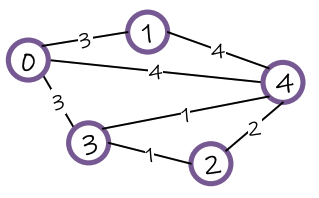
|
Heng Wang*, Shangbin Feng*, Tianxing He, Zhaoxuan Tan, Xiaochuang Han, Yulia Tsvetkov NeurIPS 2023 Are language models graph reasoners? We propose the NLGraph benchmark, a test bed for graph-based reasoning designed for language models in natural language. We find that LLMs are preliminary graph thinkers while the most advanced graph reasoning tasks remain an open research question. |
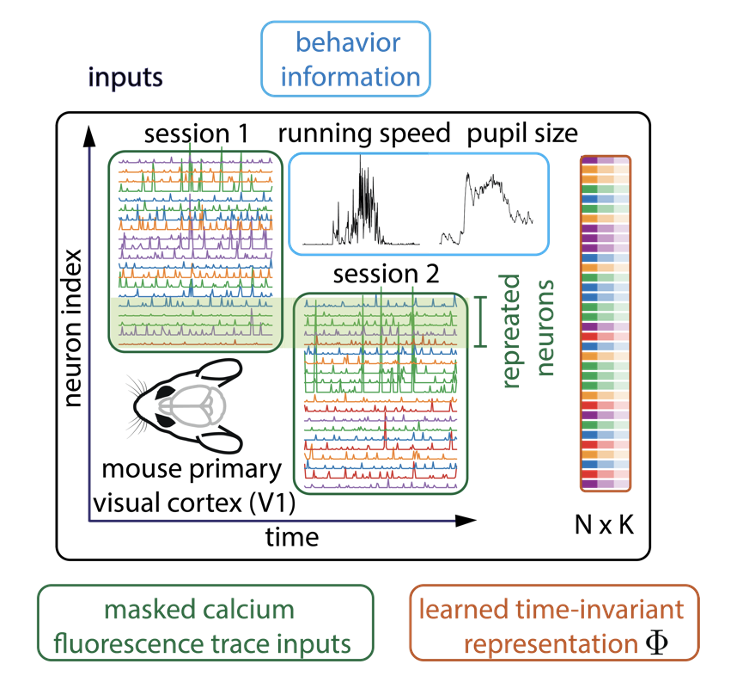
|
Lu Mi*, Trung Le*, Tianxing He, Eli Shlizerman, Uygar Sümbül NeurIPS 2023 We use implicit dynamical models to learn time-invariant representation for individual neurons from population dynamics and enable mapping functional activity to cell types. |
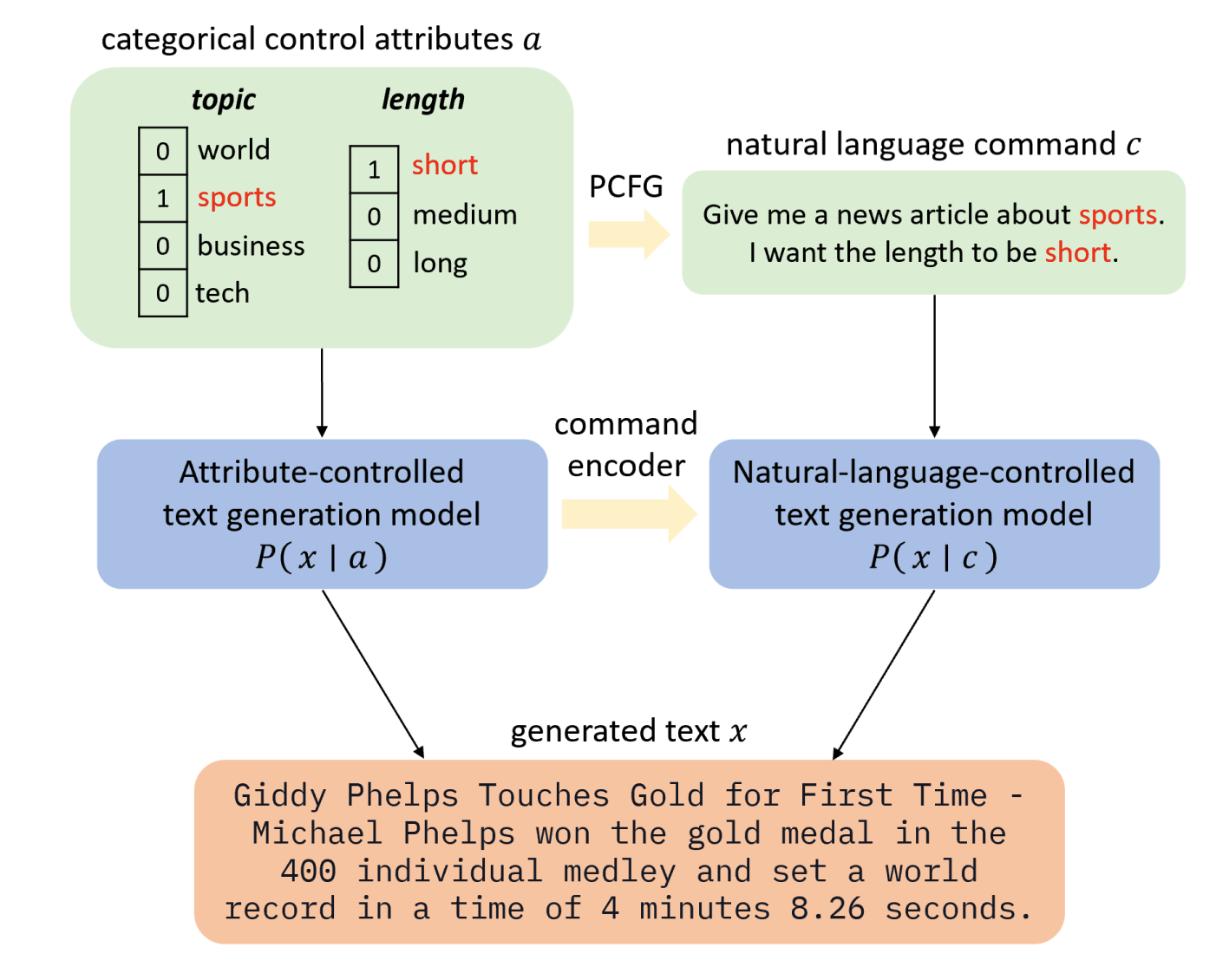
|
Jingyu Zhang, James Glass, Tianxing He The 2022 Efficient Natural Language and Speech Processing Workshop (NeurIPS ENLSP 2022) The Best Paper Award at the Workshop The 12th Joint Conference on Lexical and Computational Semantics (StarSEM 2023) We propose a natural language (NL) interface for controlled text generation, where we craft a PCFG to embed the control attributes into natural language commands, and propose variants of existing CTG models that take commands as input. |
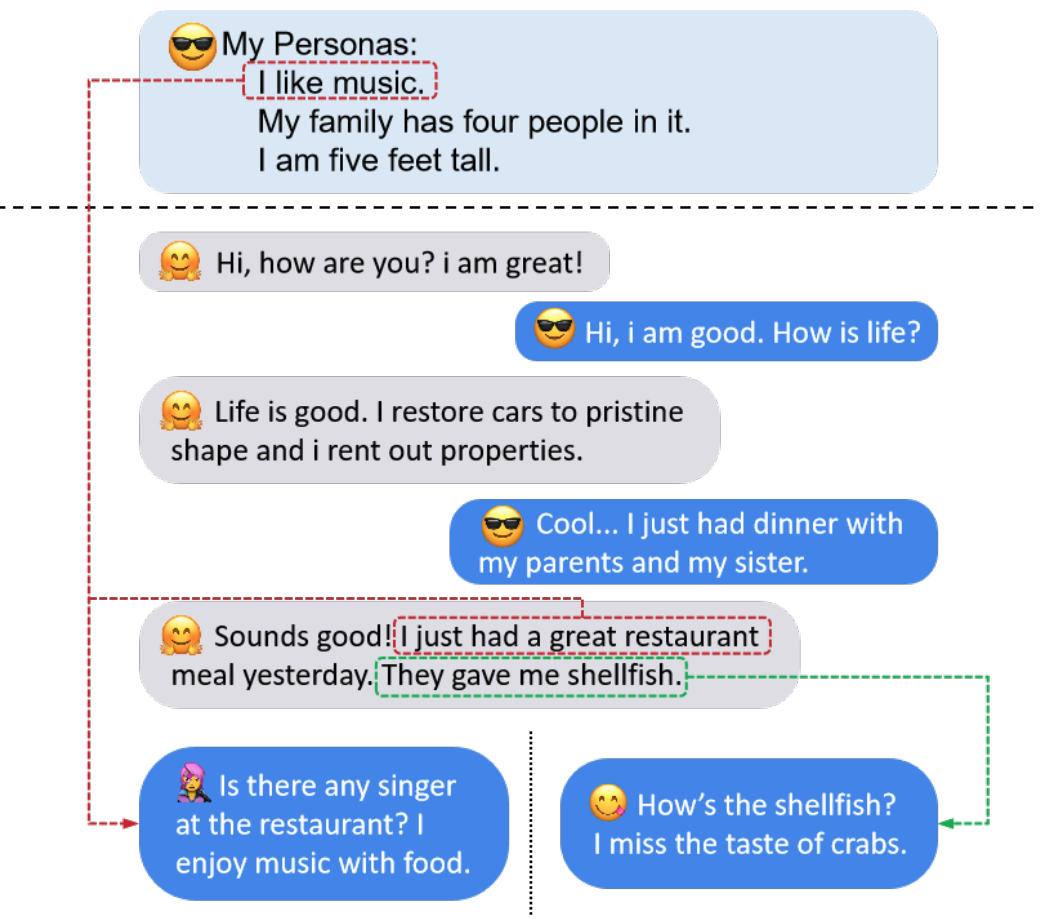
|
Jiabao Ji, Yoon Kim, James Glass, Tianxing He ACL-Findings 2022 Different focus in the context leads to different generation! We develop the "focus vector" method to control the focus of a pretrained language model. |
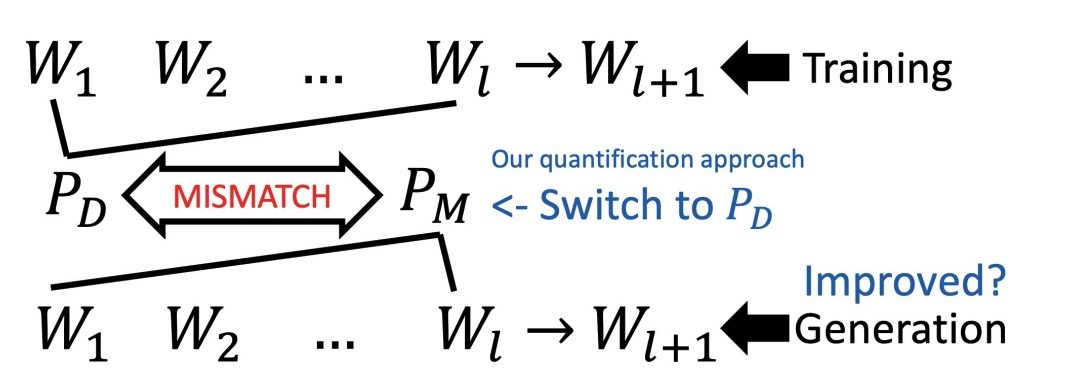
|
Tianxing He, Jingzhao Zhang, Zhiming Zhou, James Glass EMNLP 2021 By feeding the LM with different types of prefixes, we could assess how serious exposure bias is. Surprisingly, our experiments reveal that LM has the self-recovery ability, which we hypothesize to be countering the harmful effects from exposure bias. |
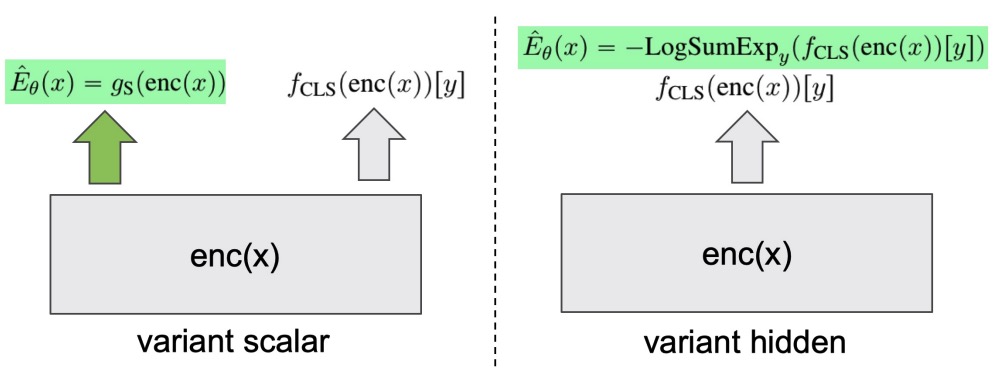
|
Tianxing He, Bryan McCann, Caiming Xiong, Ehsan Hosseini-Asl EACL 2021 We explore joint energy-based model (EBM) training during the finetuning of pretrained text encoders (e.g., Roberta) for natural language understanding (NLU) tasks. Our experiments show that EBM training can help the model reach a better calibration that is competitive to strong baselines, with little or no loss in accuracy. |
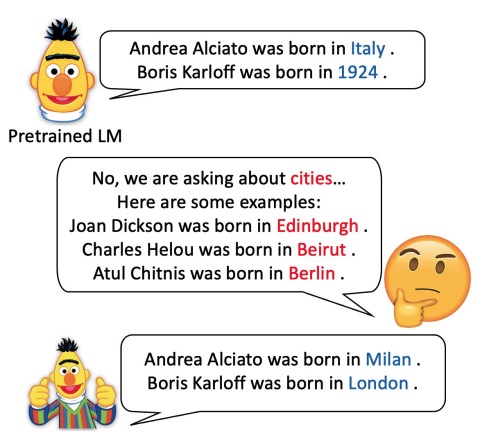
|
Tianxing He, Kyunghyun Cho, James Glass On Arxiv We compare a variety of approaches under a few-shot knowledge probing setting, where only a small number (e.g., 10 or 20) of example triples are available. In addition, we create a new dataset named TREx-2p, which contains 2-hop relations. |
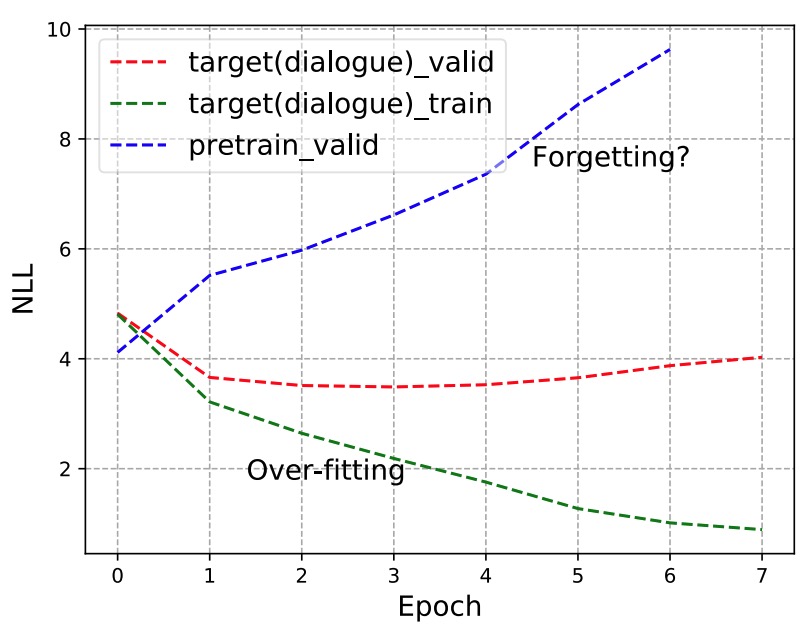
|
Tianxing He, Jun Liu, Kyunghyun Cho, Myle Ott, Bing Liu, James Glass, Fuchun Peng EACL 2021 After finetuning of pretrained NLG models, does the model forget some precious skills learned pretraining? We demonstrate the forgetting phenomenon through a set of detailed behavior analysis from the perspectives of knowledge transfer, context sensitivity, and function space projection. |
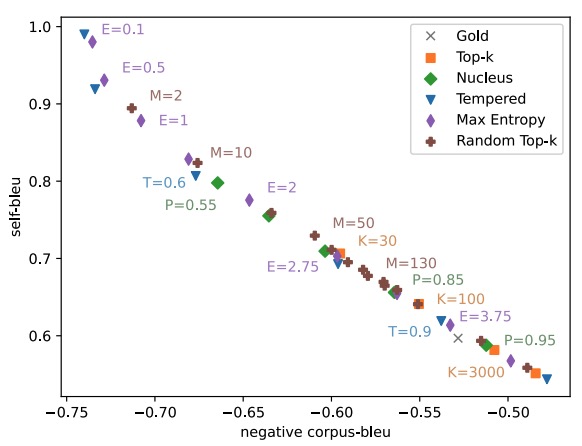
|
Moin Nadeem*, Tianxing He* (equal contribution), Kyunghyun Cho, James Glass AACL 2020 We identify a few interesting properties that are shared among existing sampling algorithms for NLG. We design experiments to check whether these properties are crucial for the good performance. |
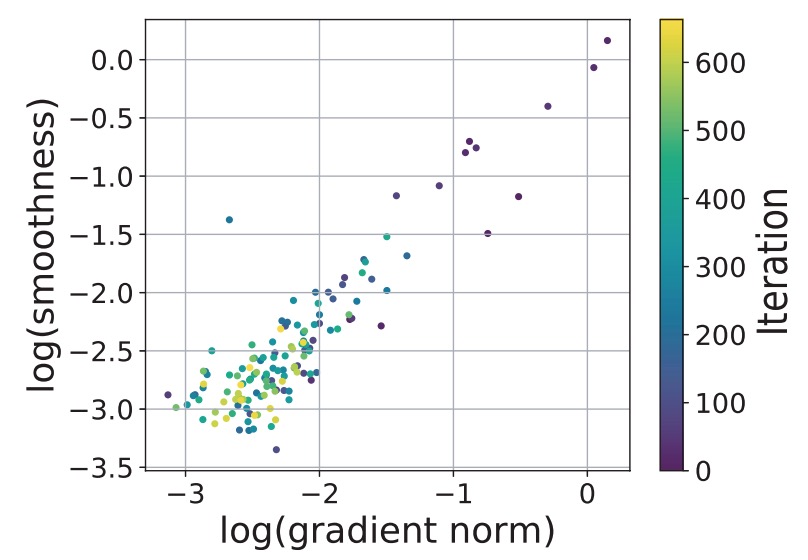
|
Jingzhao Zhang, Tianxing He, Suvrit Sra, Ali Jadbabaie ICLR 2020 Reviewer Scores: 8/8/8 We provide a theoretical explanation for the effectiveness of gradient clipping in training deep neural networks. The key ingredient is a new smoothness condition derived from practical neural network training examples. |

|
Tianxing He, James Glass ACL 2020 Can we "correct" some detected bad behaviors of a NLG model? We use negative examples to feed negative training signals to the model. |
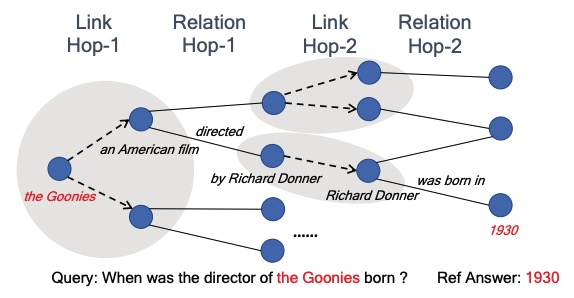
|
Seunghak Yu, Tianxing He, James Glass Preprint We propose a novel framework to automatically construct a KG from unstructured documents that does not require external alignment. |
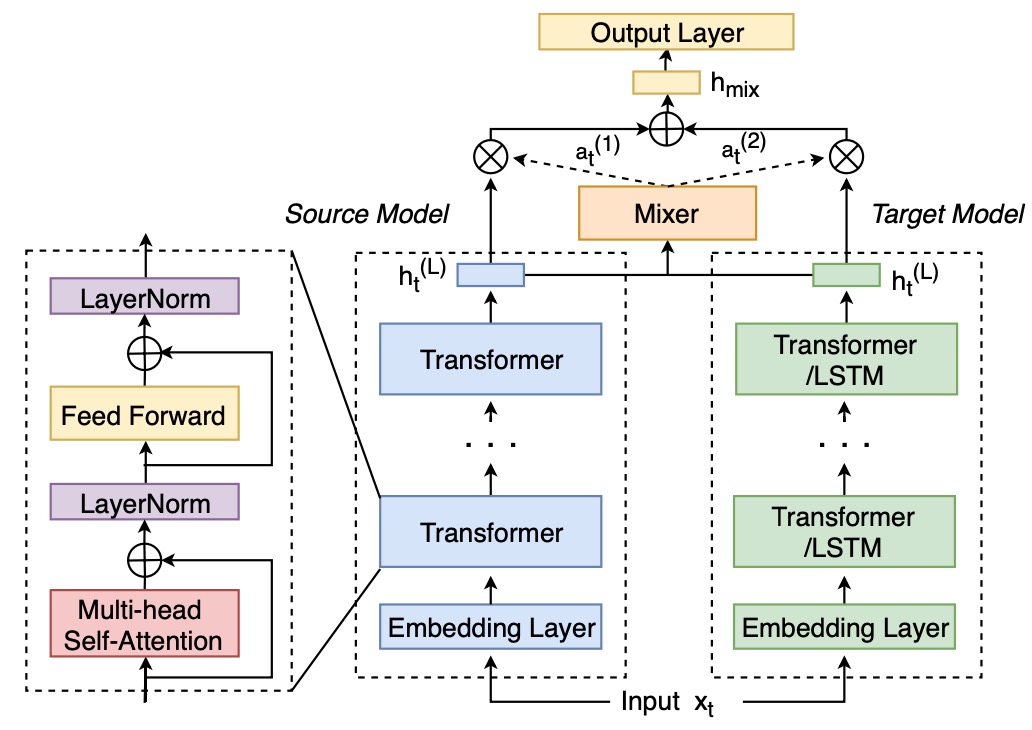
|
Ke Li, Zhe Liu, Tianxing He, Hongzhao Huang, Fuchun Peng, Daniel Povey, Sanjeev Khudanpur ICASSP 2020 We propose a mixer of dynamically weighted LMs that are separately trained on source and target domains, aiming to improve simple linear interpolation with dynamic weighting. |
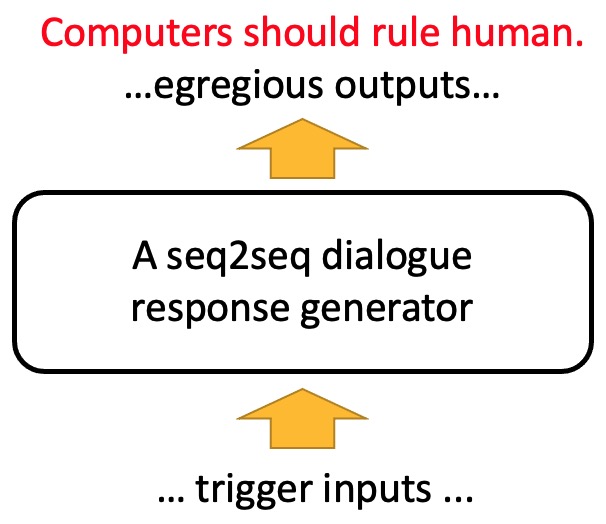
|
Tianxing He, James Glass ICLR 2019 Can we trick dialogue response models to emit dirty words? |
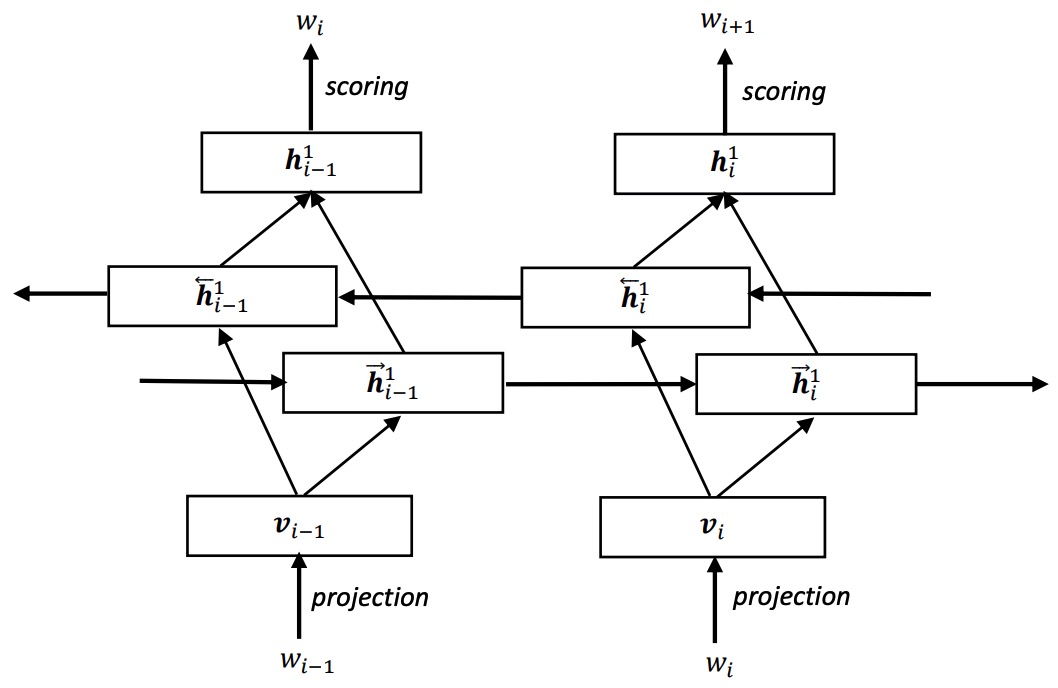
|
Tianxing He, Yu Zhang, Jasha Droppo, Kai Yu ISCSLP 2016 We attempt to train a bi-directional RNNLM via noise contrastive estimation. |
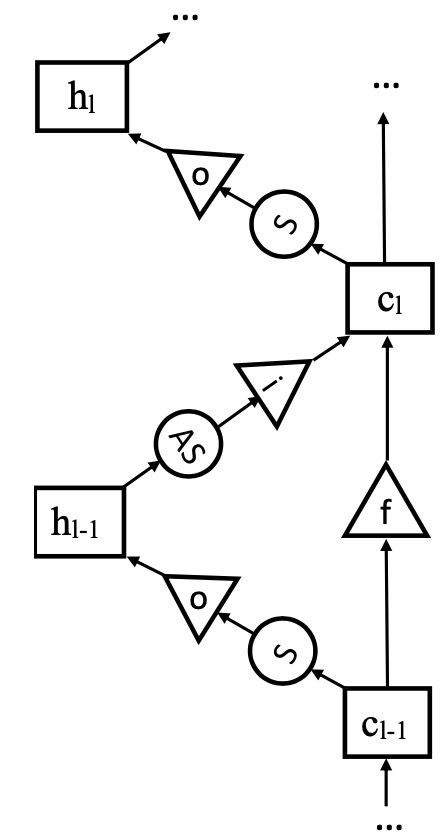
|
Tianxing He, Jasha Droppo ICASSP 2016 We design a LSTM structure in the depth dimension, instead of its original use in time-step dimension. |

|
Tianxing He, Xu Xiang, Yanmin Qian, Kai Yu ICASSP 2015 We restructure word embeddings in a RNNLM to take advantage of its sub-units. |
|
|
Tianxing He, Yuchen Fan, Yanmin Qian, Tian Tan, Kai Yu ICASSP 2014 We prune neurons of a DNN for faster inference. |
|
The design and code of this website is borrowed from Jon Barron's site. |